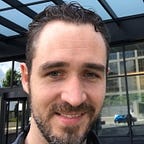The Power of Reflection
Early in my career I began to receive feedback during my reviews that I needed to tailor the technical depth of my conversations to my audience. I was going to deep into the “how” for some of my audiences and it was holding me back.
There’s nothing wrong with liking details. As a former software engineer, I have a deeply rooted need to not skim over the finer points. Even to this day, I’m more than happy to discuss the detail around cache key optimization or dive into a hypothesis with a product manager. However, early in my career, I was diving deep all the time. Sometimes I just needed to communicate “why” and “when” while leaving the “how” unsaid.
While this feedback was on point, my managers generally informed me of it at semi-annual reviews as part of aggregate feedback from anonymous sources. With little in the way of helpful guidance or specific examples, I struggled to improve.
Knowing that my career seemed to be stuck on this single point, I resolved that I would not let an absence of specific, in the moment, feedback inhibit my own career growth. To overcome this challenge I devised a simple, process of daily reflection to allow self-improvement. That is the process I want to share with you today.
The process I use for reflection may seem simple, but the act of doing it methodically and daily is where the power lies:
- What did you do today? Review the day’s conversations, presentations, decisions, and activities. Focus on your actions, communications, and choices.
- What did that achieve? Reflecting on each in turn, evaluate how those affected others. What were their reactions? What did their non-verbal responses signal? Did you produce the desired outcome? Which one of these outcomes would you most like to improve?
- What would you do differently? Of the interactions, decisions, or communications that you identified as not producing the ideal outcome, choose one to evaluate further. What might have made the outcome better? What specifically might you have done differently? What would success look like? Lastly, how would you detect a similar situation before you act such that you can try the other approach you just identified?
Every evening on the bus ride home I would put on my headphones, and go through my process of reflection. Soon I began to notice non-verbal and contextual signals that I had been missing. I realized that audience size inherently dictates the default level of technical detail at which the conversation must be base lined. I learned that I needed to “pre-build” explanations at a higher level so that I was ready for these conversations. In a matter of weeks I was able to significantly improve my communications skills and unblock my career.
Over the years I’ve discovered a few tips that make this process more effective:
- Wait for emotional neutrality. If you’re feeling elated or beat down you are unlikely to be able to take an objective view of yourself. Take the time to process before you reflect.
- Focus on things you can control. When I first started reflecting I tended to want to focus on the actions of others. However, those are not within my control to improve. While I could observe that a particular team member behaved in a way that was rude toward me, that would not help me grow. However, evaluating my own actions in the situation I might realize that I reacted to someone criticizing my idea and was unable to give sufficient focus to the remainder of a presentation, leading to poor participation.
- Deep dive on one situation. Being circumspect about our own actions is difficult and can be emotionally taxing. The objective with this process is to be a little bit better every day, not to berate ourselves.
In an industry seemingly governed by statistics, code, and speed, I have found that taking time to pause and reflect is one of my most valuable tools in my self-improvement.
Obligatory disclaimer: This has worked for me. It has worked for several people I have mentored. However, we are all unique. Your mileage may vary.
